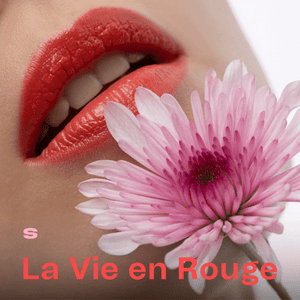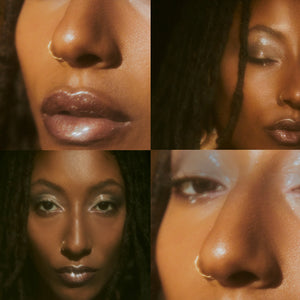DETOX NOTES
10 Best Transparent Beauty Brands to Know in 2022
10 Best Transparent Beauty Brands to Know in 2022
Honesty is the best policy. It’s an idiom we learn as kids, but it rings true no matter how old we are. In recent years, beauty businesses being more transparent has been an essential turning point for everyone from clean beauty newbies to devoted fans, because it helps consumers cut through the noise, and it's a solution for navigating greenwashing. It also helps set one beauty brand apart from the next.
Once upon a time, beauty brands would make a product and sell it—no questions asked. But just as we expect transparency from our politicians and business leaders, we’re genuinely curious about the cosmetics we love, and customers want brands to come clean–literally. There's an expectation around honesty, and brand values matter just as much as what's in a particular product. And it's not a trend. It's here to stay.
When a cosmetics company is transparent, customers can make informed choices about how to prioritize their health, and care for themselves and the planet while doing their daily skincare routine, applying makeup for a big night out, or even shampooing their hair.
The good news is that transparency in natural beauty is on the rise, and more companies are embracing it, whether that means brands being open about ingredient percentages and sourcing practices, or sharing the life cycle and environmental footprint of their beauty products in the world. These ten brands in particular are helping to pull back the curtains and inspiring a loyal following while they are at it. Read on to find out how each one is proving that sharing is caring.
Here are the top transparent beauty brands:
- Everist
- Josh Rosebrook
- Kjaer Weis
- Kosas
- Nécessaire
- Province Apothecary
- RMS Beauty
- Tata Harper
- Three Ships
- True Botanicals
Everist
People often compare major challenges to scaling Mount Everest. Canadian beauty industry veterans Jayme Jenkins and Jessica Stevenson channeled that energy when they developed the first waterless hair concentrate in aluminum packaging, a one-two punch that addresses both the industry’s plastic problem and its reliance on water. (Scan the ingredients in a conventional shampoo or conditioner formula and H2O likely accounts for 70 to 80 percent.)
“We don’t have all the answers, and we’re most-certainly not perfect,” say Jenkins and Stevenson on their website. They also acknowledge that there’s no such thing as zero-waste, but that hasn’t stopped them from trying. Because, as with hiking up a mountain, when prioritizing sustainability and transparency in beauty, the journey is just as important as the destination.
Josh Rosebrook
Hairstylists may be known for being good at keeping their clients’ secrets, but Josh Rosebrook is an open book when it comes to his eponymous line of products for skin, scalp and hair.
When he couldn’t afford the kind of skincare he wanted to use, Rosebrook started making products for himself by researching ingredients and mixing them in his kitchen, and eventually began giving them to his clients to try.
Fast forward to today, and he still prioritizes transparency by being involved in every step of the beauty manufacturing process, from carefully selecting high quality raw materials, to working closely with suppliers to ensure ethical, sustainable, and fair-trade practices.
Kjaer Weis
When Danish-born makeup artist Kirsten Kjaer Weis founded her collection of makeup and skincare, refillable packaging was almost unheard of in the beauty space, let alone refillable packaging that felt like you were holding an objet d’art in your hands.
Ever since, Kjaer Weis has been the benchmark for brands that are trying to reduce their packaging footprint without compromising on luxury. And what’s inside matters just as much: made in Italy, almost all Kjaer Weis products have been Certified Natural or Certified Organic by the country’s strict governing body, the Controllo e Certificazione Prodotti Biologici.
Kosas
With a background in biology and fine arts, and a childhood spent watching her mother who worked in retail as a representative for Clarins and Clinique, Kosas founder Sheena Yaitanes didn’t set out to build a clean beauty brand, but after realizing that the clean ingredients she was playing with in her kitchen yielded the results she was after as someone with sensitive skin, that’s exactly what she created. Advertising itself as "clean makeup for skincare freaks," Kosas goes beyond most banned ingredient lists, excluding over 2,700 ingredients and adhering to EU clean standards. It also demystifies clean beauty, by breaking things down for consumers in a way that’s fun and approachable.
Nécessaire
Sometimes you need to dig pretty deep on a company’s website to find out where they stand on sustainability. That’s not the case with Nécessaire, the body care brand founded by Randi Christiansen and Into the Gloss/Glossier expat Nick Axelrod.
“Footprint” gets the same prime real estate as “Shop”, and they are honest right off the top about what it means to be a company that makes, well... stuff. “We do not give back as much as we take. We have a footprint. We believe sustainability is the pursuit of a more responsible approach in everything we do. It is a commitment and we recognize we have far to go in ours,” they write on their environmentally-focused web page.
Then they outline what they are doing to reduce their impact, whether that’s their supply chain (everything is made in the United States and run a dual shipping transit system to minimize our carbon) or the fact that they are certified climate neutral since 2019, and certified plastic neutral by rePurpose Global since 2021.
Province Apothecary
Founder Julie Clark wanted an alternative to the harmful steroid creams she was using to treat her eczema so she started making her own treatments at home. They worked, and she wanted to learn more, so in 2010, Clark began studying aromatherapy, holistic health, herbal medicine and esthetics to garner more skincare experience before she launched Province Apothecary in 2012.
Since then, Province Apothecary has become a force for change in the beauty industry. Take their partnerships with organizations like Bullfrog Power, a renewable energy provider that fuels their facility, or Pact Collective, which repurposes and recycles packaging that isn't currently accepted in municipal programs. They are also committed to ethical ingredient sourcing, many of of which are grown in Canada, the brand’s birthplace, further reducing the company's environmental footprint.
RMS Beauty
Long before she started what was arguably one of the first clean beauty brands, RMS Beauty founder Rose-Marie Swift championed transparency in the beauty industry.
In fact, she launched a website called beautytruth.com when, after suffering from various undiagnosed health issues, she learned that the high levels of certain chemicals that showed up in some of her blood work and lab tests were likely from the ingredients in cosmetics she was exposed to daily in her line of work as a makeup artist for models like Gisele Bündchen.
Shortly after, her brand was born, and she’s been telling it like it is ever since, pushing her cosmetic contemporaries to do the same.
Tata Harper
As one of the pioneers in clean beauty and environmentally-friendly practices, Colombian-born Tata Harper continues to raise the bar on that front after launching her skincare line more than two decades ago.
Consumers who want to know more about product production, how fresh their product is or who made it, can trace these details via a batch number that’s emblazoned on each the bottle before it ships. And, while they use ingredients from around the globe, some are grown right on the grounds of the brand’s Vermont farm, making sourcing transparency a cinch for those botanicals.
Meanwhile, Tata Harper makes sure all products and eco-friendly business practices are third-party certified by organizations like ECOCERT, inspiring additional trust for those who care about the environment and their health.
Three Ships
Toronto-based Three Ships is on a mission to be “the most effective natural beauty brand in the world.” While founders Laura and Connie are dreaming big, they stay laser-focused on being a truly transparent company.
Clear labeling and an ingredient glossary help consumers know what's behind their products, while their commitment to sourcing transparency comes to life via Source Maps for every product that trace the supply chain, outlining where every ingredient comes from and travels to, from the time of harvest to when they arrive in Canada, where all of the Three Ships products are made.
True Botanicals
Being a leading edge beauty company in the current market means constantly evolving and staying accountable. Or, in the words of True Botanicals founder Hillary Peterson, “it requires earnest, thorough and persistent work by every single employee, supplier and partner,” and “diligence along every step of the way!”
That’s one of the reasons the brand releases quarterly sustainability and safety reports giving consumers updates on the goals the company has reached (a recent success: they now formulate with 100 percent RSPO Certified Palm Oil) and the ones they are working toward, like getting the MADE SAFE seal (aka free of 6500 chemicals known to harm humans and the environment) for all new products, and growing their regenerative farming practices.













